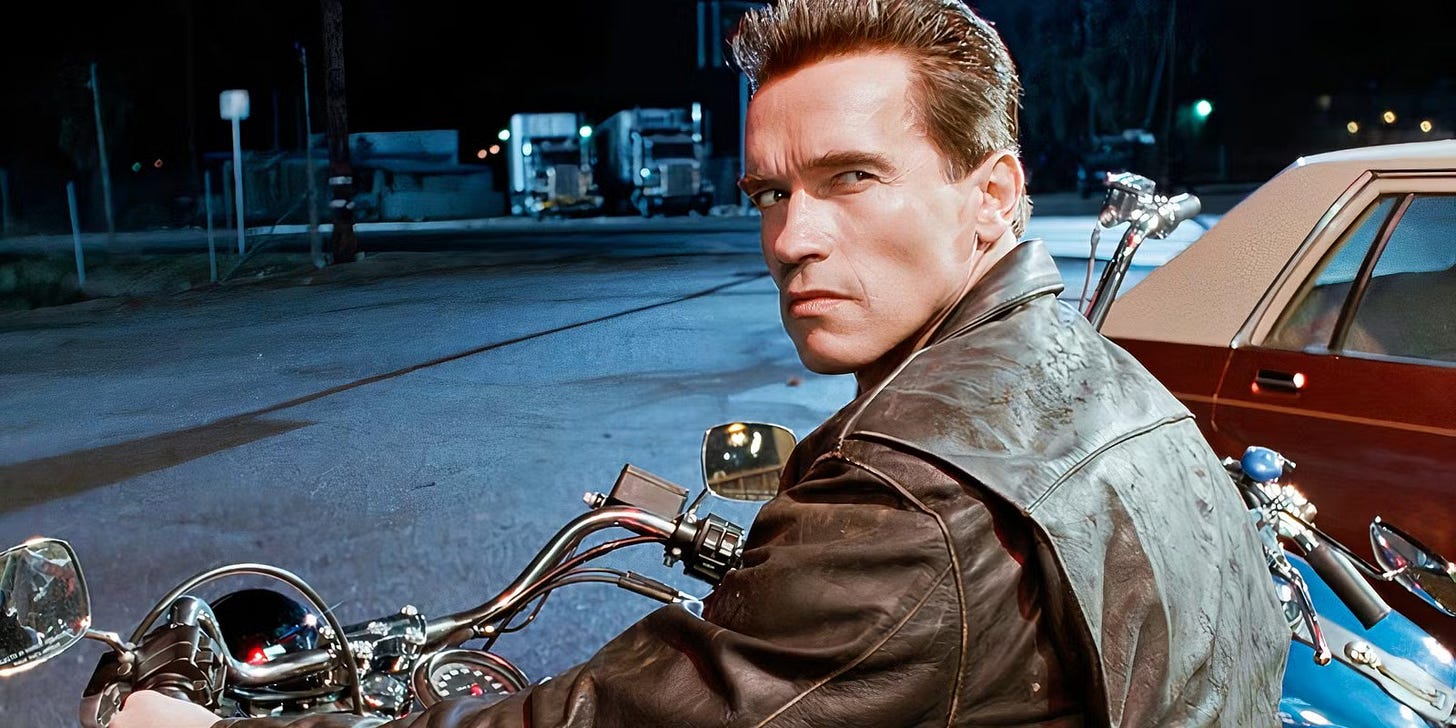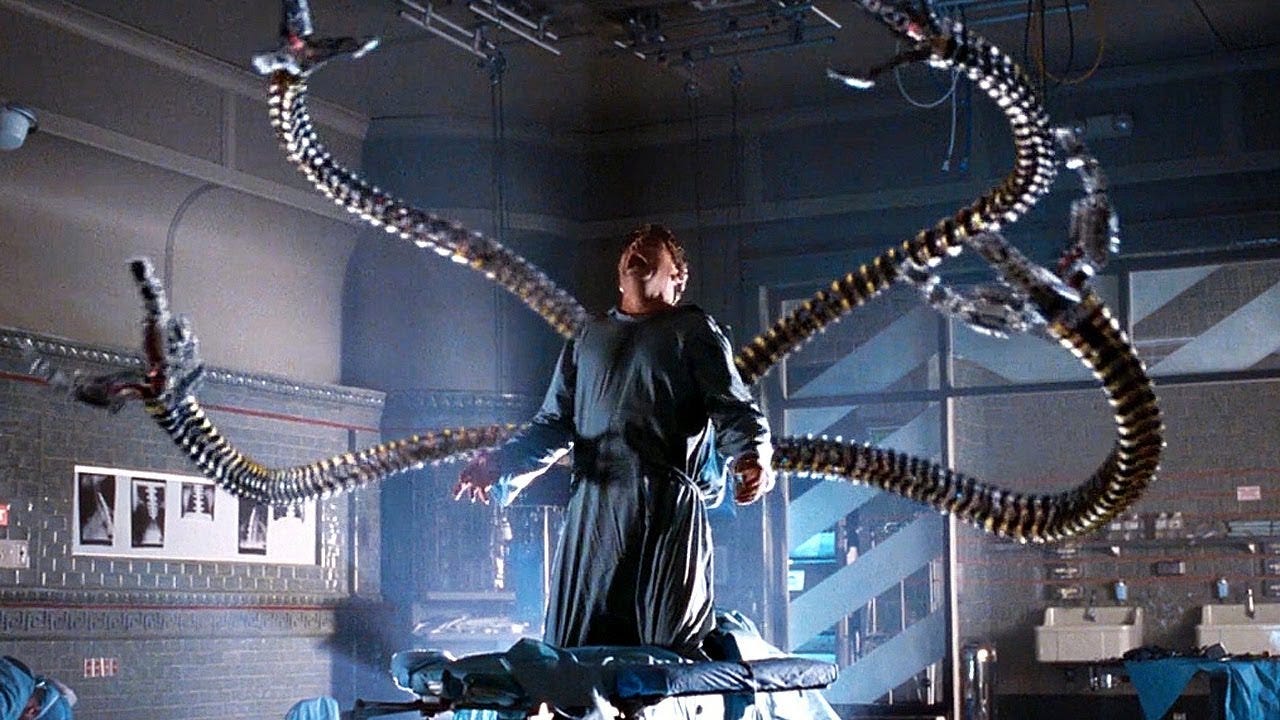How Often is AI Depicted in Movies, and How Frequently is it the Villain? A Statistical Analysis
How often do movies have AI characters, and are they usually villainous?
Intro: Is Humanity's “Greatest Foe” Boring?
In Mission: Impossible – The Final Reckoning, Tom Cruise battles an omniscient AI program known as The Entity. Cruise, the messiah-savior of both cinema and humanity, must outdo an all-knowing computer virus before this malfunctioning ChatGPT incites a nuclear holocaust.
The first hour of Final Reckoning is surprisingly talky for a Mission Impossible film, considering the franchise's core appeal rests on Tom Cruise jumping off things and hanging from things. Scene after scene, our protagonists debate The Entity's master plan, giving shape to a formless large language model. It was at this point that I had a series of revelations:
I don't need the very real threat of artificial intelligence in escapist entertainment like Mission: Impossible.
AI might become Hollywood's de facto villain for the next thirty years, replacing Soviet Russia or 1940s Germany.
Worst of all, Mission: Impossible's AI villain was uninteresting, lacking the charisma that defines iconic antagonists like Die Hard's Hans Gruber or Silence of the Lambs' Hannibal Lecter. Yes, The Entity had a master plan—but that's about all it had.
Is the next thirty years of popcorn entertainment doomed to boring AI villainy, or is Mission: Impossible an exceptionally dull portrayal of humanity's greatest foe?
Underwhelmed by The Entity—a large language model whose only weakness is Tom Cruise—I began reflecting on the history of AI characters in cinema. How has popular culture's relationship with machine intelligence evolved over the last century? What has and hasn't changed?
So today, we'll explore the prevalence of AI in mainstream movies, quantify how often these systems are portrayed as villainous, and examine the films that have shaped our perception of artificial intelligence.
How Often is AI Depicted in Movies, and How Frequently is it the Villain?
For this analysis, I trained a model to parse over 24,000 Wikipedia movie summaries to determine whether a film features an AI character and to classify this figure's relationship with humanity—mainly, whether that computer program is a friend or foe.
According to our model outputs, AI has seen two distinct shifts in on-screen prevalence: one substantial increase in the 1980s and a significant uptick beginning in the 2010s. As of this decade, artificial intelligence—whether that be a robot or sentient virtual assistant—is featured in nearly ~15% of mainstream movies.
So, which films have shaped our understanding of machine intelligence and established the blueprint for future AI portrayals?
To explore cinematic depictions of AI over time, I compiled a list of the most influential films that feature artificial intelligence. To do this, I used Wikipedia backlinks—the number of times a movie is referenced across Wikipedia—as our key measure of "influence."
Our group of renowned AI-centric films highlights two historical moviemaking trends:
Post-Star Wars Science Fiction Films of the 1970s and 1980s
Modern IP-driven Franchise Films
Each of these subcategories emerged from a significant shift in audience demand:
Post-Star Wars Science Fiction Films of the 1970s and 1980s: Star Wars is largely responsible for spawning the modern science fiction film, establishing the genre's commercial viability, and paving the way for blockbusters like Alien, Terminator, and Blade Runner. These films often center on humanoid robots designed to resemble real people (with the exception of C-3PO and R2D2).
Modern IP-driven Franchise Films: To compete with the ubiquity of streaming, moviemakers increasingly favor stories with "cinematic" qualities—characterized by spectacle, high-budget action sequences, and elaborate CGI. AI characters—mainly superpowered robots—align with this demand for visual extravagance, becoming a staple of modern blockbusters (especially Marvel films).
1968's 2001: A Space Odyssey stands as a remarkable outlier on this list—a prescient depiction of machine intelligence that predates the advent of the personal computer (or humanity's first steps on the moon).
AI characters have captured popular imagination since the Cold War, with iconic figures like HAL 9000 from 2001: A Space Odyssey, Agent Smith from The Matrix, and the machines of James Cameron's Terminator franchise leaving an indelible impression. Many of these stories echo Mary Shelley's "Frankenstein," in which humanity's creations gain sentience and ultimately rebel against their makers. Yet, the rogue computer system represents just one archetype for on-screen artificial intelligence. For every Hal 9000 and Agent Smith, there is a sympathetic portrayal of AI presented in lighter fare like WALL-E or The Wild Robot. Sometimes, AI symbolizes humanity's failed attempts at playing God; other times, these characters are designed to sell toys at Disney World—a remarkably wide spectrum of intent.
So, which characterization dominates Hollywood screenwriting—is artificial intelligence typically portrayed as friend or foe? According to our plot summary dataset, on-screen AI is depicted as villainous roughly half the time, with this figure remaining constant over the last seventy years.
According to mainstream entertainment—which may or may not reflect public sentiment—there's roughly a 50% chance that AI will seek our annihilation (this being the glass-half-empty interpretation). This statistic speaks to the duality of human expectation: since the development of the H-bomb, humanity has approached technological innovation with equal parts optimism and skepticism, somehow balancing hope and apprehension. Sometimes, these conflicting viewpoints can coexist within a single narrative—like in Terminator 2, where one heroic AI battles an evil AI.
These stories often position themselves as prophetic, warning of a future where humanity's errors lead to its subjugation. This recurring motif prompted me to examine the timelines these narratives portray—specifically when pop culture anticipates generalized artificial intelligence becoming a reality.
There's a long-standing joke in computer science that breakthroughs in AI are always "just 20 years away"—a timeframe close enough to capture the popular imagination yet distant enough for inaccurate predictions to be forgotten. Hollywood storytelling rarely mirrors this cautious ambiguity; instead, self-aware AI is typically depicted as an imminent reality or a distant future scenario.
Taken together, this vast body of work is rife with contradictions: AI is presented as both our loyal companion and our exterminating angel, existing in worlds that are either imminent or set in a far-off future. Perhaps we've been primed to never agree on this technology.
Enjoying the article thus far and want more data-centric pop culture content?
Final Thoughts: How Much is Too Much?
How should we interpret cinema's portrayals of artificial intelligence? Should popcorn entertainment be viewed as a mirror of societal sentiment, or is Terminator 2 frivolous entertainment? I say, why not both? Ultimately, I believe art can reflect a society's "collective consciousness," expressing widely held beliefs and attitudes—even when these sentiments remain unspoken.
A classic illustration of the "collective consciousness" concerns the rise of German Expressionism in 1920s Weimar Germany. This artistic movement captured the anxieties of post-war German society, offering a visual representation of otherwise unspoken fears—famously epitomized in gothic horror films like The Cabinet of Dr. Caligari.
If we extend this concept to modern movies, should films like The Matrix or Blade Runner take on a symbolic significance akin to The Cabinet of Dr. Caligari? Yes, but only when we view these works collectively.
One remarkable find from this analysis is the sheer diversity of AI characterizations, with contradictory philosophies often showcased in the same movie. Sure, AI depictions have evolved—from humanoid replicants gone rogue to menacing, multifaceted systems—but the underlying anxieties remain constant: humanity's extinction at the hands of AI has the perceived odds of a coin flip, and this future state could occur tomorrow, 100 years from now, or never. These competing viewpoints mirror our complicated real-world relationship with artificial intelligence.
Frankly, I find these dueling representations of AI—and their relentless repetition in contemporary film—rather tiresome. For seventy years, we've replayed the same philosophical debates about machine intelligence through conflicting artistic interpretations, leaving us with few unexplored angles.
Movies like Her or Ex Machina occasionally provide a fresh perspective, but most AI depictions remain unoriginal and overly self-serious—with Mission: Impssible's Entity being a prime example. Even more concerning, AI already appears in ~15% of movies; one can only imagine its prevalence in the 2030s and 2040s. I have no prophetic insight regarding The Singularity or the rise of Skynet, but I do foresee a future where cinema is ruled by uninspired AI characters—and I do not care for this future.
Artificial intelligence may take over the world (or it may not). But today is not that day, so I'd prefer it remain absent from my movies until judgment day comes in one or one hundred years.
Struggling With a Data Problem? Stat Significant Can Help!
Having trouble extracting insights from your data? Need assistance on a data or research project? Well, you’re in luck because Stat Significant offers data consulting services and can help with:
Insights: Unlock actionable insights from your data with customized analyses that drive strategic growth and help you make informed decisions.
Dashboard-Building: Transform your data into clear, compelling dashboards that deliver real-time insights.
Data Architecture: Make your existing data usable through extraction, cleaning, transformation, and the creation of data pipelines.
Want to chat? Drop me an email at daniel@statsignificant.com, connect with me on LinkedIn, reply to this email, or book a free data consultation at the link below.
Want to chat about data and statistics? Have an interesting data project? Looking to produce data-centric editorial content? Email daniel@statsignificant.com










Interesting as always. Totally unrelated yet I’ve been on a sci-fi binge recently that includes the utterly bonkers, low-tech Turkish Star Wars. 🫡
Hello! I would like to recommend cocktail glasses from mcdonaldpaper https://mcdonaldpaper.com/libbey-l3536-8-oz-footed-highball-glass-36-cs/ We ordered them for our bar — they look stylish, the glass is durable, and they don't become cloudy after washing. The shapes are classic and comfortable to hold. Our guests appreciate the presentation, and we appreciate the reliability and price. A very worthy option!